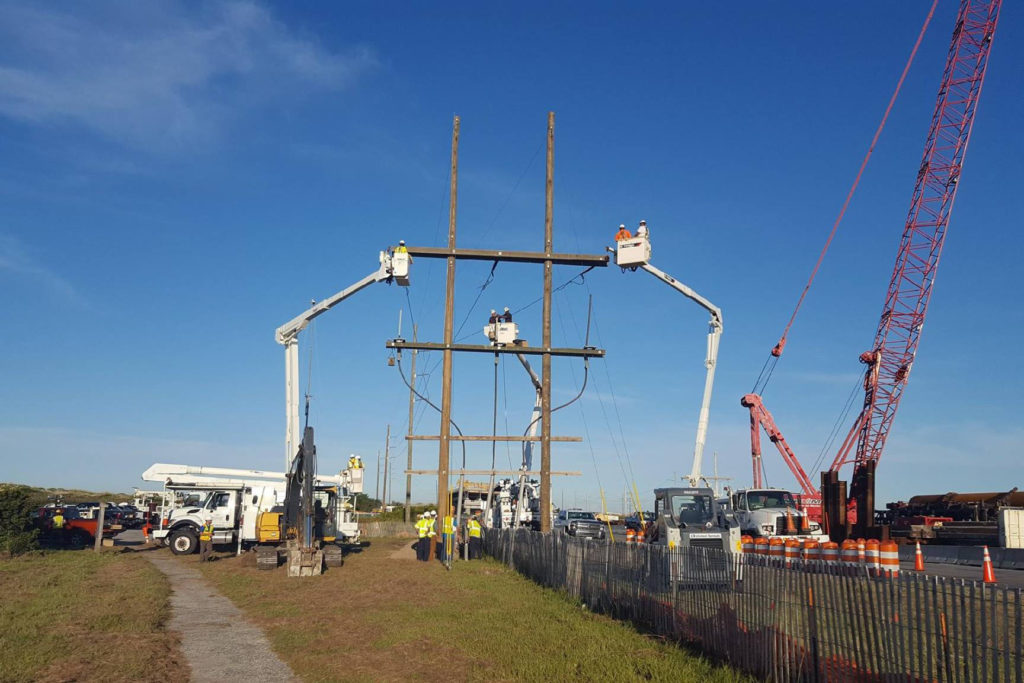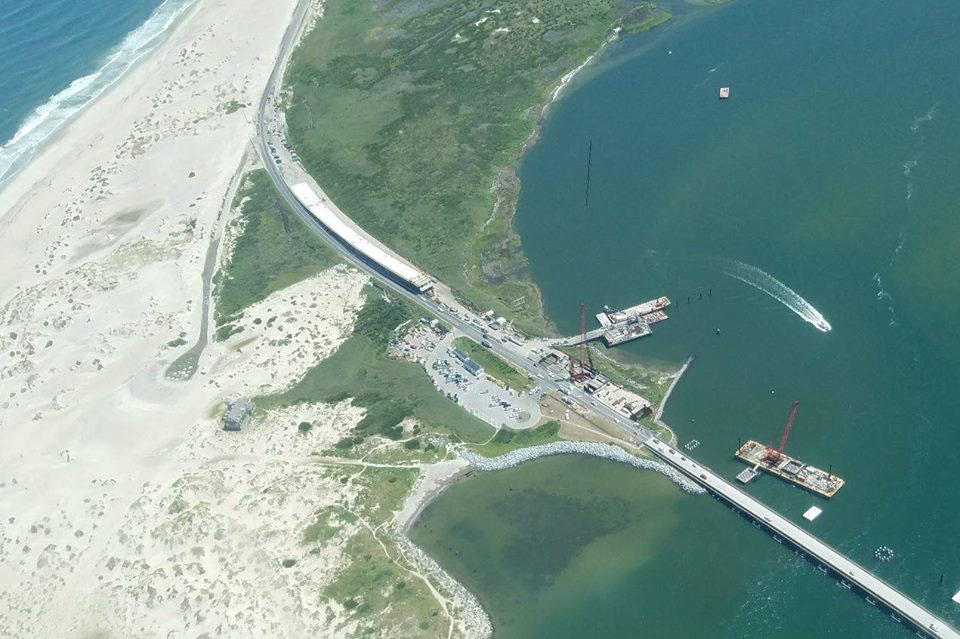
This disaster came without warning…without a name.
Within hours, thousands of people would be forced to evacuate Hatteras and Ocracoke islands on North Carolina’s Outer Banks. And emergency communications at two electric cooperatives serving the popular vacation destinations would enter full crisis mode.
“When we have bad weather, a hurricane, we have a few days to prepare. When you wake up and your entire service area goes dark on a normal Thursday, you don’t have time to think about how to communicate that,” said Laura Ertle, director of public relations and marketing for Cape Hatteras Electric Cooperative in Buxton, North Carolina.
CHEC and Tideland EMC were at their summer peak load when a construction company rebuilding the 2.5-mile Bonner Bridge that links Hatteras Island to the the northern stretch of the Outer Banks accidentally severed underground electric transmission cables owned by CHEC. The transmission runs south to feed Ocracoke Island, which is served by TEMC based in Pantego.
“We are no strangers to hurricanes and extreme, weather so we have a really good crisis communications plan in place,” said Ertle, who updates CHEC’s plan every spring before hurricane season. “I came into the office, reached for my emergency communications binder and followed the plan.”
Tensions soared with the summer heat, as it became evident that cut transmission cables meant days—if not weeks—of repairs. Officials in Dare and Hyde counties ordered mandatory evacuations of all non-residents from both islands.
National media arrived, and the spotlight was on CHEC as it worked to get repairs done. Ertle found herself speaking to network TV news for the first time.
“We went viral. For a very small cooperative, that was a lot to deal with,” said Ertle. “Everyone wants to know everything all at once. Everyone wants continuous updates.”
Ertle developed communication rules to keep pace: Follow the talking points, and share the latest information with employees who are also in contact with the public.
“During a crisis, it’s important to have clear-cut talking points and stick to them, even if you feel you’re repeating yourself,” she said.
And it wasn’t just TV.
“We saw our social media numbers go through the roof,” said Heidi Jernigan Smith, who manages economic development, marketing and corporate communications at TEMC.
“While we’re accustomed to being accountable to our members, this outage during peak tourist season made us accountable to tens of thousands of non-members whose vacation hopes and dreams depended on resolution of the transmission outage.”
Ocracoke, accessible only by boat, has a year-round population of less than 1,000 that quadruples during the summer months. When the blackout hit, TEMC gained 3,000 likes on Facebook and hundreds more followers on Twitter.
The 5,800-member CHEC also saw a huge jump in its social media audience—adding more than 11,000 Facebook likes and hundreds more Twitter followers.
CHEC also sent out mass emails on progress on power restoration. “Our main focus was to make sure our members were the first to know what was going on,” said Ertle.
TEMC also accommodated 700 tourists and property owners near and far away by letting them sign up for text alerts.
“We normally don’t send out text alerts before 6 a.m. or after 11 p.m. We made an exception—people were calling in, waking up without power,” said Smith.
Even without tourists, the co-ops scrambled to locate enough generation to meet the basic needs of island residents. Hatteras’ summer peak is about 45 MW, while Ocracoke’s is around 7 MW.

TEMC had to procure mobile generators after Ocracoke’s 3-MW peaking plant went offline after the blackout. Residents were asked to turn off air conditioning and large appliances. Businesses with their own generators were encouraged to use them.
“Within 24 hours of putting the mobile generators in service, everybody had some service and we were able to lift the conservation alert for Ocracoke entirely,” said Smith, adding that the island also benefited from an unseasonable cold front.
Three days in, CHEC announced a two-prong effort: Crews would continue to work on splicing the submerged transmission cable while linemen would build new overhead power lines. The co-op’s goal to restore transmission as quickly and safely as possible met an outpouring of public support.
The drama unfolded in real time with a state webcam positioned to monitor the impact site.
“The public watched the daring excavation work continue to reach the third damaged line while in the background crews worked at breakneck speed to achieve an overhead solution,” said Smith. “Social media followers were fairly evenly split, with half believing the underground splice team would cross the finish line first while the rest pulled for the overhead crews. It left no doubt that everything humanly possible was being done to restore power.”
The overhead line solution got to the finish line first, allowing electricity to flow within a week of the accident. The new power lines will stay in place at least until the Bonner Bridge construction is completed by the end of 2018.
“We’ve received tons of support since the event,” said Ertle. “Our members have been extremely gracious. We have received hordes of baked goods at the office and handwritten thank-you notes. The support has been overwhelming.”
On Ocracoke, one vacationer from Virginia set up a $125 credit at a restaurant for TEMC staff working through the blackout. An occasional resident from California paid for lunches and pizza to be delivered.
“People who aren’t members watched it from afar and had an appreciation of what we were going through,” said Smith. “It’s the biggest outpouring of support we’ve ever seen following an outage.”
Smith took the ferry off Ocracoke and drove two hours north to Bonner Bridge to see the new transmission poles. Along the drive she saw signs at schools and businesses thanking linemen and the co-ops for getting the job done.
“The expressions of gratitude along the way, they made you teary-eyed,” she said. “A lot of people were exposed to the fact that we are a co-op. A lot of co-op members were really taking pride in their people and their co-op they own.”
And when she saw the new poles? “I looked for lipstick,” she joked.
Cathy Cash is a staff writer at NRECA.